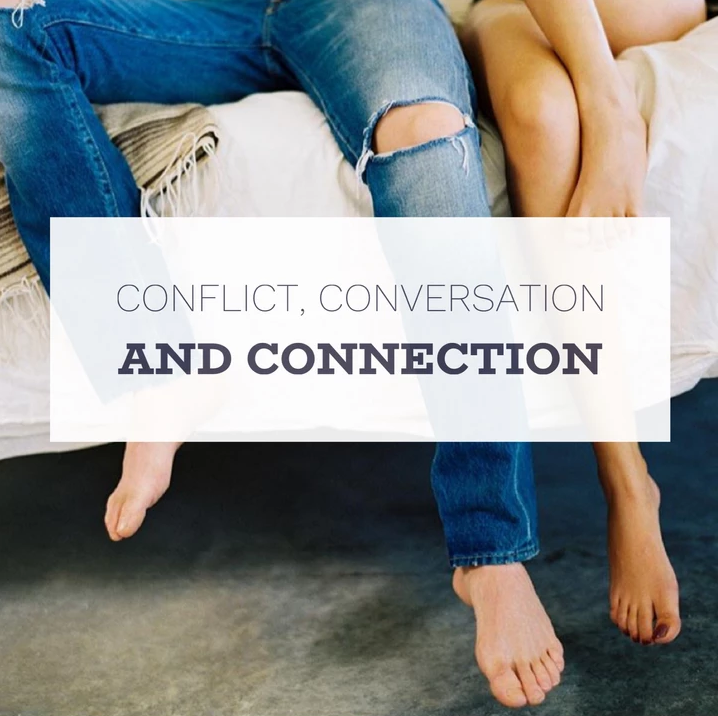Having conflict or an argument is often seen as negative, problematic or something to avoid in a relationship. Some of us even believe that a relationship is only going well if we haven’t had conflict recently and that when we do, it creates a break or fracture in our relationships. But in reality, conflict is an important way or even an opportunity for our relationships to grow and evolve. Conflicts can actually strengthen our connections with others and can help us to understand one another a little bit better.
In fact, research tells us that processing conflict with someone can be beneficial to a healthy friendship or romantic relationship. Conflict can provide an opportunity to view something from a different perspective, to vocalize how we feel or to even to ask for what we need.
If you are someone that avoids conflict (or even someone who comes in ready for a fight), it is crucial to first understand why. Some people are afraid to hurt others (or afraid to be hurt themselves), perhaps they don’t want to to appear as difficult or high-maintenance or maybe they fear that conflict will cause relationship problems. Others may be simply uncomfortable with conflict because they haven’t yet experienced or witnessed healthy and productive conflict that results in an amicable resolution.
Our ability to have healthy conflict is influenced by our experiences, our upbringing, our beliefs, our fears, our emotional state, our connections with others and by what we’ve been exposed to throughout our lives. If we don’t see any conflict growing up, are exposed to unhealthy or abusive conflict resolution or learn an avoidant conflict style through parent modeling, there are negative effects that can carry over into adulthood. Conflict and confrontation are inevitable (and incredibly important, too) in all areas and phases of life (work, friendship, familial relationships, romantic relationships, etc.), and when we aren’t taught or provided appropriate modeling on how to resolve issues, it can cause us to internalize intense emotions and/or avoid meaningful relationships as life goes on.
The good new is, there ARE healthy, effective and productive ways to express yourself. If you’re someone who isn’t used to communicating needs and wants, it can take practice and it can feel risky or even overwhelming, but it’s worth it-We promise. When speaking up, remember these important tips:
Start Small
If you’re not someone who regularly expresses needs and wants or if talking about hurt feelings or unmet expectations feels scary, start by communicating needs about something small. Starting with something small is a great way to practice communication skills and to get a feel for the communications styles to which your partner (friend, family member, coworker, boss, etc.) is most receptive.
Model Empathetic Listening
Practice listening and responding during conflict and confrontation in the ways in which you expect/hope your partner (friend, family member, coworker, etc.) would respond. Be willing to feel with the person whom with you are communicating as well as be willing to understand their thoughts and emotions about a particular situation rather than explain or defend yourself.
Use “I Feel” Language, Practice Pause and Stay In the Present
It is OK to communicate when you feel you aren’t being heard or to discuss your feelings when your partner, friend or family member hurts your feelings. Communication needs and feelings can help others begin to understand you better. Communication helps to build intimacy and understanding. Try to come from the perspective of “I feel” instead of “you did,” make requests instead of complaints, stay in the present (AKA don’t bring up old shit), start from a soft place, listen to the other person and maintain calm by breathing deeply and pausing before you speak.
Identify Healthy vs. Unhealthy Conflict (and act accordingly)
It is important to remember that there is a difference between healthy conflict and destructive conflict or unproductive fighting. There are some specific things to look out for when determining if a healthy conflict is shifting into a toxic fight/interaction: You say hurtful things you don’t mean, there is no clear resolution, the problem is regularly one-sided, the issue is ongoing and consistent, or the conversation turns into the blame game. If you notice that a conflict is going south or that conversations regularly head in the wrong direction, it may be best to take a pause, re-address the situation when both parties are calm or even seek professional support in order to improve communication skills.
Timing is Everything
Timing is particularly important when it comes to emotional or difficult conversations. Before starting a difficult conversation, take a moment to check in with yourself. Are you able to have a productive conversation at this time? Also consider the other person’s emotional state/mental state, the topic of conversation and schedule. Recognizing WHEN you are able to argue or disagree in a rational way is another key factor in healthy and productive conflict resolution.
If we attempt to manage a conflict when we are upset (or even if we are short on time), we often act impulsively. Mind the timing and know that it’s okay to say that you (or the person you’re communicating with) need a break or some space. Some people like to discuss what is on their minds right away, but others may need time to collect their thoughts and emotions. If you OR your partner (friend, family member, coworker, etc.) need time take a moment to pause to process the situation, it is essential to respect and honor that need…but be sure to make a plan to come back to resolve it later.
